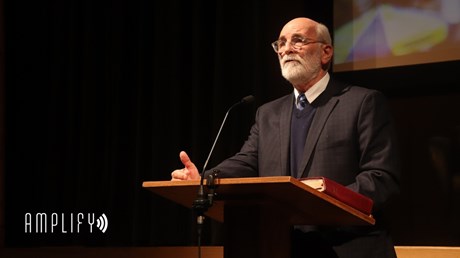Friday, 30 November 2018
John 1:1-2, 14
from
https://www.biblegateway.com/passage/?version=NIV&search=John%201:1-2,%2014
Preoccupied with Love: Lifting High Evangelism Again
An interview with Dr. Jerry Root.

Ed: It’s hard to deny that we are living in challenging times culturally. The church’s influence is fading, and we are struggling to find answers to some hard questions. What’s your take on the health of the church today, especially as it relates to our witness?
Jerry: Throughout history, times have always been challenging. Since the Fall, there has never been a time when all went perfectly well. Cultures are in a state of constant flux and change. Like swells on the sea, there are ups and downs, so too, culture is always moving. If we waited until all was still and steady—that is, if we waited until conditions were just right—we would never get started with kingdom work.
The church has never progressed well when its ministry is determined by surrounding circumstances. It functions best when it keeps its eyes on Christ. Jesus said, “Go make disciples.” It was said in challenging times.
The church obeyed and thrived even when the sledding was tough. The command to make disciples still stands no matter what the times are like.
Billy Graham, interviewed by People Magazine, was asked if he was a pessimist or an optimist as he looked at the world’s situation. Graham responded, “If I only had the world to look at, I’d be a pessimist. However, I have my Bible, and I have read the last page and have seen that it all turns out all right. I’m an optimist!”
That is the right spirit. However, perhaps optimist is not the right word. Professor Jeff Davis said, “Hope is a better word.” I think he is right. Those who lose their sense of hope lose their sense of purpose and mission.
As for the questions the culture might be asking at any given hour, the church ...
from
http://feeds.christianitytoday.com/~r/christianitytoday/ctmag/~3/UMxBljHX1DQ/preoccupied-love-lifting-high-evangelism-again-jerry-root.html
Fleming Rutledge: John the Baptist Points to the Real Hope of Advent
We’re not awaiting a helpless baby, but a righteous and powerful judge.

It would be hard to say which is more alien to our contemporary ideas of getting ready for Christmas, the season of Advent or the figure of John the Baptist—the man who greeted the Pharisees and Sadducees by calling them a “brood of vipers” (Matt. 3:7, ESV throughout). How would you like to get that on a Christmas card?
This unlovable figure is very much out of sync with our times, yet he is one of the foremost figures of Advent, at least in the preaching calendar followed in my own Episcopal Church tradition. Like John the Baptist, Advent is out of phase with its time, with our time. It encroaches upon us in an uncomfortable way, making us feel somewhat uneasy with its stubborn resistance to Christmas cheer. To be sure, we have done a pretty good job of domesticating Advent, and I am by no means above this sort of thing myself. Every year, I used to buy Advent calendars for my children with cute little doors that open and show cute little pictures. I have yet to find an Advent calendar that has a picture of John the Baptist. We really don’t know exactly what to do with him; he doesn’t fit into anything.
But here he is by the river, dressed in the fashion of the wilderness and assaulting the crowds that come out to hear him: “You brood of vipers! Who warned you to flee from the wrath to come?. . . Even now the axe is laid to the root of the trees. Every tree therefore that does not bear good fruit is cut down and thrown into the fire” (Matt. 3:7, 10).
Jesus the Judge
In all four gospels, John the Baptist sets the tone for the proclamation of Jesus Christ. His language is apocalyptic; it signifies the arrival of God. Even if we thought we could fit the baby Jesus into our scheme of things ...
from
http://feeds.christianitytoday.com/~r/christianitytoday/ctmag/~3/XzeMnb9qCmo/fleming-rutledge-john-baptist-points-real-hope-advent.html
Christian Free Will and Modern Compatibilist Atheists
from
https://www.patheos.com/blogs/tippling/2018/11/30/christian-free-will-and-modern-compatibilist-atheists/
2 Peter 3:10-11
from
https://www.biblegateway.com/passage/?version=NIV&search=2%20Peter%203:10-11
Thursday, 29 November 2018
Commentary: How to Tell the Difference Between a Prophet and a Crank
Truly biblical prophecy strengthens the church—without adding anything to the Bible.

On the day the church went public, it was laughed at. A noisy rabble was spilling out into the streets of Jerusalem, declaring the works of God in all kinds of languages, and while some responded with genuine amazement, others simply ridiculed it: “They have had too much wine” (Acts 2:13). Peter, famously, answered their snark in two ways. He pointed out the time of day—“It’s only nine in the morning!”—and he quoted Joel’s prophecy that “your sons and daughters will prophesy” (2:15–17). Prophecy, both old and new, was used to defend the church against the charge of being ridiculous.
These days, in the West at least, the boot is usually on the other foot. For many Christians, prophecy makes the church look more ridiculous, not less. The biblical prophets were a curious bunch of confrontational outsiders, fiery eccentrics, and hairy lefties, and their oracles of judgment and eschatology are much harder to understand than the logical, linear letters we prefer reading. But at least they are in the Bible. Not so with modern “prophets,” who are either political activists in disguise, perpetual protesters overdosed on Amos, or maverick charismatics who make outlandish claims and even more outlandish salaries. Prophecy, it seems, has fallen on hard times.
What accounts for the difference between Peter’s response (“these people aren’t crazy, they’re prophesying”) and ours (“these people are prophesying, so they are crazy”)? Are we using the word in different ways? Elsewhere, we find that Paul saw no conflict between wanting believers not to “go beyond what is written” and seeing them “eager to prophesy” ...
from
http://feeds.christianitytoday.com/~r/christianitytoday/ctmag/~3/zQcQ742UyqU/andrew-wilson-difference-prophet-crank.html
Good News in Rural America: There’s More to the Story than Poverty and Disappointment
Jesus is alive and active in rural America.

For quite a while now we’ve heard about how rural America is hurting. How jobs are leaving and young people are following them to coastal cities and hipster hotbeds like Austin or Seattle.
We’ve heard that the opioid epidemic is ransacking sections of our country like Appalachia harder than almost anywhere else. We’ve heard about hopelessness. We’ve heard about Mountain Dew mouth and obesity. We’ve heard about declining numbers in rural churches. We’ve heard a lot that is, well, pretty disheartening.
I’m not going to argue with demographic or economic statistics, but I do want to say clearly that this tale of hopelessness—all-too-often told by folks who have left or never really lived in rural America—misses a lot and skews our thinking about rural America in general and specifically the future of rural and small town ministry.
I know because I’ve lived and told this story a few times myself.
As I’ve mentioned before on The Exchange, my wife and I grew up outside a town of about 1,100 in rural northwestern Pennsylvania before moving to a couple different cities to pursue our education. In the summer of 2016, we moved back to the region we grew up in to plant Oil City Vineyard Church in the (somewhat confusingly named) small town of Oil City.
Initially, when we felt God calling us to Oil City, we saw the town, like most who live in the region, in terms of needs. Generational poverty was high, as was substance abuse and unemployment. The problems seemed both a bit overwhelming and yet surprisingly motivating to us as church planters.
While we never thought we as either individuals or a single church could fix the problems, we did (perhaps a bit subconsciously) think ...
from
http://feeds.christianitytoday.com/~r/christianitytoday/ctmag/~3/XY024OEt57I/good-news-rural-america-more-story-poverty-disappointment.html
The Case for an Early Christmas
Christian history gives us reason to see Advent and Christmas as coexistent, not separate.

“Don’t rush Christmas,” a seminary professor once told me sternly.
Divinity school faculty often press pastors-in-training to hold off on Christmas celebrations until the eve of the big day, relying on a handful of Advent songs to get through the bulk of December and leaving tree-trimming for the very end of December. High churchgoers, from Anglicans to Presbyterians, cringe when the local mall blasts Bing Crosby the day after Halloween. “Advent is a season, too, distinct from Christmas,” we crow. “Must our culture hurry everything?”
The season of Advent marks a time of holy longing and anticipation. It opens space for sitting with the stories of Elizabeth, Zechariah, and John the Baptist, of Mary, Joseph, the angel Gabriel, and the long journey to Bethlehem. Its liturgical color, purple, is the same as Lent and links the two seasons together as similar spaces in which God’s people mourn the brokenness of the world and also participate in the sacred hope that Christ has come and will come again. To celebrate Advent is to make space for vitally important Christian practices: stillness, silence, and longing.
Yet here’s the rub—cultural Christmas starts early. As in, early early. Our local Costco had artificial Christmas trees on sale by mid-October this year. Schools and churches and community centers begin offering Christmas programs, concerts, and events before Thanksgiving turkeys have cooled. If the church holds off on the celebration of Christmas until December 24, we risk ending up so world-weary from cultural Christmas that we never properly celebrate the holier elements of the season.
The more persuasive argument, however, is that the theological practices of ...
from
http://feeds.christianitytoday.com/~r/christianitytoday/ctmag/~3/vLrQMs3sxls/christmas-advent-case-for-early-holiday.html
Wednesday, 28 November 2018
Psalm 136:1,26
from
https://www.biblegateway.com/passage/?version=NIV&search=Psalm%20136:1,26
From Jim Elliot to John Allen Chau: The Missionary-Martyr Dilemma
The latest death on the mission field challenges the church to rethink a view of martyrdom as peak adventure.

Until recently, few in the US had heard of North Sentinel Island, where young American John Allen Chau was killed with arrows by members of an isolated tribal group.
But as the story spread—first the tale of a 26-year-old adventurer and world-traveler, then of a Christian missionary willing to risk his life—people around the globe responded with swift and sometimes scathing reactions.
Many considered Chau a fool, or worse, criticizing him for breaking Indian law and endangering the isolated Sentinelese, who have no immunity to many common diseases. Others called Chau an inspiration, even a martyr. Some immediately drew parallels to late missionary Jim Elliot.
Sometime between Friday, November 16, when Chau wrote his last journal entry, and Saturday, November 17, when the fisherman who had brought him to his destination saw his body on the beach, Chau was killed by the people he had sought to reach for Christ. One of a handful of uncontacted tribes remaining, the Sentinelese have no peaceful contact with outsiders. We don’t even know their real name; they are called “Sentinelese” because the British named their land North Sentinel Island.
Though many are fascinated by the idea of a “stone age” tribe, Chau’s goal was not “tribal tourism.” He wanted to live with the Sentinelese, share the story of Jesus, and translate the Bible into their language, as his journal entries and statements from All Nations, Chau’s sending mission organization, make clear.
The similarities between his death and Elliot’s are hard to miss. Sometime during the afternoon of Sunday, January 8, 1956, Jim Elliot and four friends—Pete Fleming, Ed McCully, Nate Saint, and Roger Youderian—were ...
from
http://feeds.christianitytoday.com/~r/christianitytoday/ctmag/~3/EU_wo6DrZfo/john-allen-chau-jim-elliot-missionary-martyr-dilemma.html
Hard Conversations in Evangelicalism: Abuse, Harassment, and Sexual Violence in the Church
Thoughts on sexual violence, our lack of response, and how to get things right.

Jesus wept.
Those words capture my heart every time I read them. There are few stories in scripture more cherished than that found in John 11 in which the very heart of Jesus breaks as he watches his beloved Mary mourn the loss of her brother. God himself stepped into the world of brokenness to identify with us.
His tears were a gesture of love that still speaks to us today.
We know one day all will be made right. We know one day God will make all things new. We know God has the power to heal and bring the dead things back to life, to create beauty out of the ashes of our lives.
But what love does is that it firmly implants itself in the here and now. It looks each person in the eye in this moment and speaks of the one thing that can make all things new: Jesus.
Getting it right
The upcoming Reflections: A GC2 Summit on Responding to Sexual Harassment, Abuse, and Violence conference is one of the more challenging (and important) events we’ve helped to organize. There are so many issues to consider, and we don’t believe that we can address everything in one day, but we do think that we can help start some conversations that need to continue.
But as we’ve been planning, one thing, perhaps more than any, has risen to the top of our hearts, and it’s this:
We want to be a people, and this a conference, that in everything honors God.
Members of our team here at the Billy Graham Center are survivors. Many of our speakers are survivors (and some will share that). And one thing that has been deeply implanted in our hearts as we prepare for this event is the gravity of this issue.
We are not simply hosting a conference. We are asking God to change us—to make us better.
We want churches to get this right. This is ...
from
http://feeds.christianitytoday.com/~r/christianitytoday/ctmag/~3/41xVkJtoAv4/hard-conversations-evangelicalism-on-sexual-violence-gc2-su.html